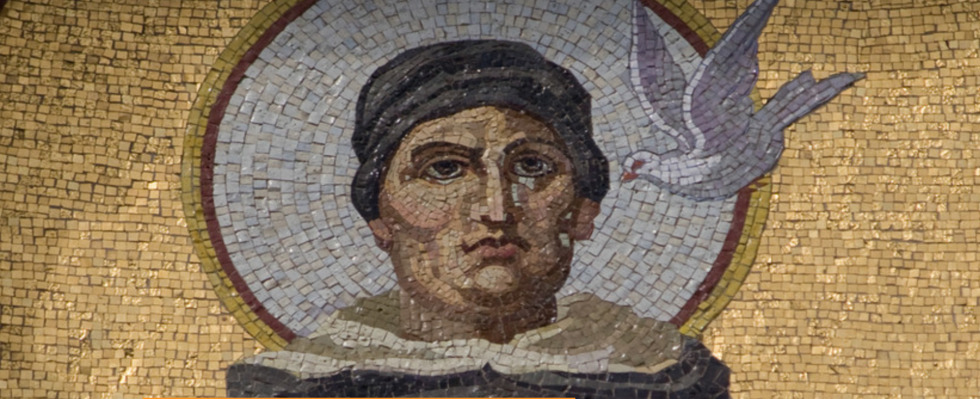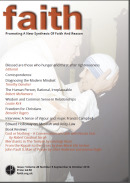Freedom for Christians
Benedict Rogers
Benedict Rogers tells of adventures and prayers with those persecuted for their faith
It was at university that I was drawn to the work of Christian Solidarity Worldwide (CSW), an ecumenical Christian charity working for religious freedom for all. The CSW motto is: "Pray, Protest, Provide".
My first foray into all this was in 1994 when, as a student, I travelled with Baroness Cox to the Armenian enclave of Nagorno Karabakh. The war-torn enclave had been decimated by conflict between Azerbaijan and Armenia in the early 1990s. Nagorno Karabakh had historically been part of ancient Armenia, but Stalin changed the boundaries in 1921, moving the territory into Azerbaijan. With the collapse of the Soviet Union, ethnic and territorial conflict erupted. Baroness Cox became a champion of the suffering Armenians of Nagorno Karabakh, travelling at the height of the war to bring humanitarian aid, and to document the atrocities and provide a voice in the outside world. She slept in bomb shelters and counted the grad rockets as they fell.
In 1994 a fragile ceasefire had been agreed, and she invited me to travel with her. Other companions included human rights campaigner and US Congressman Frank Wolf, along with plumbers, electricians and nurses for work on a rehabilitation centre for war victims. We flew to Yerevan, Armenia, on a cargo plane laden with aid, and then by military helicopter to Stepanakert, capital of Nagorno Karabakh. Although a ceasefire was in place, I lay awake at night listening to sporadic gunfire on the frontline, and prayed.
East Timor
That visit opened up a lifetime’s vocation and a whole new world. In 1997, after graduation, I moved to Hong Kong as a journalist, volunteering with in my spare time. I came to know East Timorese refugees in Macau, meeting Father Francisco Maria Fernandes, the first East Timorese to flee his country following Indonesia’s invasion of the former Portuguese colony in 1975. This sparked a close friendship with the East Timorese people, taking me the tiny half-island off the coast of northern Australia many times between 2000 and 2006.
In 2002 I was present at their independence celebration, standing next to Father Fernandes as the national anthem was sung and the flag was raised. I asked him "Father, did you ever believe you would live to see this day when your country would be free? " His reply has remained with me: "Yes, I did. Throughout our struggle, people all over the world said to me ‘Why do you carry on? You are fighting a losing battle. Indonesia will never give you freedom. The world will never help you. Why don’t you just give up?’ But we had one thing those people did not know about. We trusted God. This was a victory of faith."
The other person in East Timor with whom I worked was Sister Lourdes and her Secular Institute of Brothers and Sisters in Christ. She could be described as East Timor’s Mother Teresa.
Known affectionately as ‘Mana Lou’, she established her congregation in August 1989 with a small group of girls. The impact which Mana Lou has had on East Timor has been extraordinary. During the Indonesian occupation and the violence in 1999, she put her life on the line every day. After one massacre, the priest and village leaders fled, traumatised, but Mana Lou arrived, arranging distribution of food, and praying with the people. According to Dr Daniel Murphy, an American doctor who works with her, she had an extraordinary ability to soften the hearts of the pro-Indonesian militia. At roadblocks she would leave her car and speak to the armed men, who were often pointing their weapons directly at her. "Within minutes, she would have them laughing with her, then crying, and then on their knees praying with her," he recalls.
When violence escalated after the referendum result was announced, and the capital, Dili, was on fire, some 15,000 people fled into the forests around Mana Lou’s Institute near Dare. When I met her later, she told me that she and the Institute fed and cared for them. "All 15,000?" I asked "How did you feed them?" Mana Lou laughed as if I had asked a silly question. "God worked a miracle. Of course we did not have enough food for 15,000, but each morning I woke up, I prayed, and I started cooking rice. The barrel of rice was not enough to feed many, but as I cooked and prayed, the rice just kept coming out of the barrel. It never ran out. The day the rice finished was the day INTERFET came."
In the post-referendum carnage, Indonesian military and militia forced thousands of Timorese across the border into Indonesian-controlled territory. Many were still there years later, in desperate conditions in camps. In spring 2001, Mana Lou travelled there to provide humanitarian help and spiritual support, and encourage those who wanted to return to East Timor.
The camps were still controlled by the militia, who wanted to kill her. Each time she met with the refugees, bare-chested aggressive militia would ride motorbikes into the room, revving their engines and looking menacing. She confronted them and asked "Will you come home? Will you come home to the Father’s house – to God?"
At that, witnesses recall, many of these militiamen – thugs guilty of horrific crimes – broke down in tears. Those who converted then joined her in her work encouraging the refugees to return to East Timor – the very refugees they had been holding hostage.
Indonesia
Working in East Timor led to a wider interest in Indonesia, and for the past seven years I have been documenting rising religious intolerance in the world’s largest Muslim-majority nation. Indonesia has a good tradition of inter-religious harmony, but this is increasingly under threat as more and more Christian churches, and other religious minorities, are targeted by radical Islamists.
I have prayed with Protestant church congregations outside a locked church building, attempting to hold a Sunday service. In each case, the church had been locked and sealed by the authorities, even though it had existed for years and was legally approved. The congregations meet outside, partly to continue Sunday worship, and partly as a gesture of protest. On one occasion, as we sang hymns and prayed, we were surrounded by an angry mob of radical Islamists shouting "Christians get out. Kill the Christians". Finally, after the pastor concluded the service, I asked him how close we had been to violence. "Very close," he said, which was why he had brought the service to a premature end. "I knew the police would not be able to protect us."
Pakistan
In Pakistan, a close friend was Shahbaz Bhatti, the country’s Minister for Minorities Affairs who was assassinated in 2011. On one occasion, Shahbaz took me to meet seven year-old Sharee Komal, who had been brutally raped and tortured because she came from a Christian family. Shahbaz was helping her and her family, because no one else would. Another time, Shahbaz and I missed a bomb by five minutes in Islamabad.
In October 2009, Shahbaz came to London to address CSW’s annual conference. As usual, his first request was for prayer. He told us: "I live for religious freedom, and I am ready to die for this cause . . . We will bring a change in the life of those who are living in darkness, we will bring a change in the lives of those who don’t have hope, and we will bring a smile on the faces of those living under severe harassment and victimisation . . . This is the key objective of my life – to live for those who are voiceless, who are suffering." He asked us to devote one minute a day to pray for him and Pakistan. "Let’s pledge that we will work together to promote harmony and tolerance. We will bridge the gaps among different faiths. We will strengthen this world with the message of peace and tolerance."
Shahbaz knew he was in danger. Four months before his assassination, he recorded an interview with the BBC, for broadcast in the event of his death. He said: "These Taliban threaten me. But I want to share that I believe in Jesus Christ, who has given his own life for us. I know what is the meaning of the cross and I am following the cross. I am ready to die for a cause. I am living for my community and suffering people and I will die to defend their rights."
Burma
Of all the countries I have come to know well, Burma is closest to my heart. There I have prayed in refugee camps, with former political prisoners, and with children displaced in the conflict-ridden jungles.
I was baptised, confirmed and received into the Catholic Church in Rangoon, Burma, by my friend and mentor, Burma’s first ever Cardinal, Charles Maung Bo, on Palm Sunday 2013, with Lord Alton of Liverpool as my sponsor and companion.
Cardinal Bo, whose motto is "Omnia Possum in Eo" – "I can do all things in Him", from Philippians 4: 13 – is one of Burma’s most outspoken voices for human rights, justice, religious freedom and inter-faith harmony. On his appointment as Cardinal, he told the media: "I want to be a voice for the voiceless". A profile in La Stampa headlined "the cardinal who brings poetry to the faith" described him as one who "speaks like a poet but his evangelical message covers the economy, society and politics".
In his Easter message in 2014, Cardinal Bo said: "The task of Christians is to move fences, to tear down walls." His country, he said, has been through "our way of the Cross for the last five decades". A nation "was crucified and left to hang on the cross of humanity. We were a Good Friday people. Easter was a distant dream". But today, he adds: "We are an Easter people. There are streaks of hope today."
Martyrdom and hope
On 14 February 2015, Archbishop Bo received the red biretta. I had the great privilege to be present at the ceremony in St Peter’s in Rome. But the previous night, I had an equally important time, remembering my other close friend and martyr, Shahbaz Bhatti. In the church of San Bartolomeo all’Isola, where the Community of St Egidio is based, Shahbaz’s personal Bible is on display, in a memorial to modern-day martyrs.
Notes:
Benedict Rogers is CSW’s East Asia Team Leader






